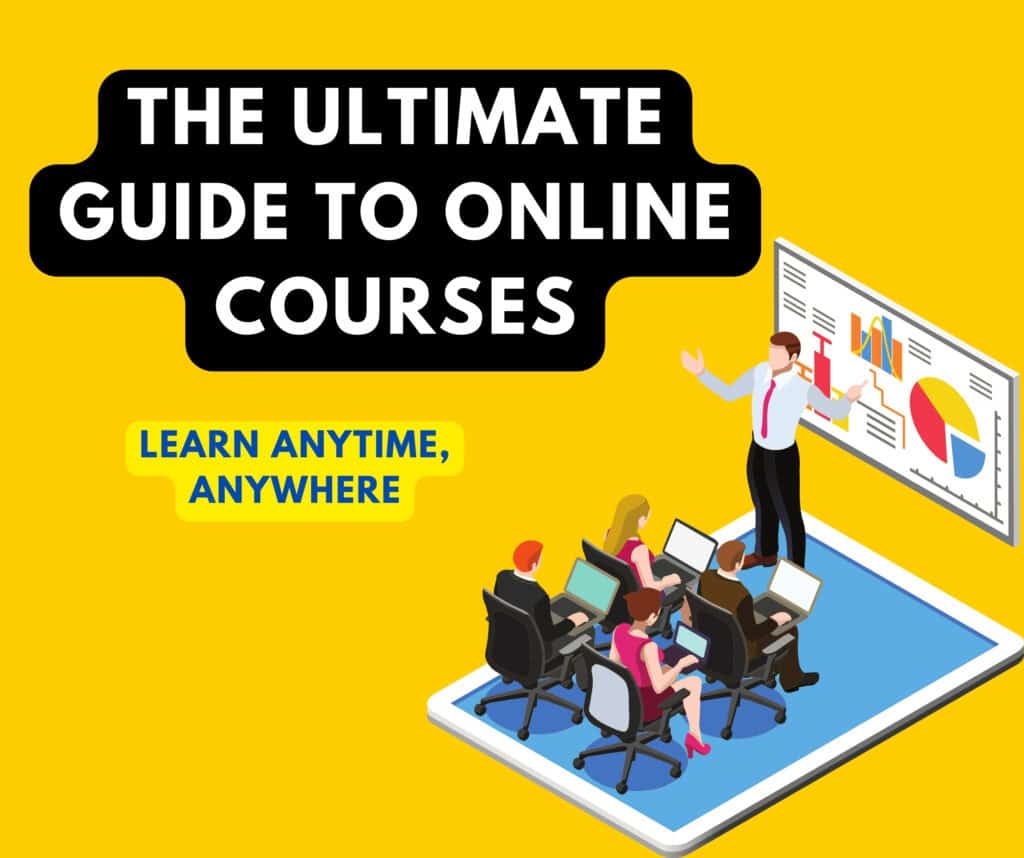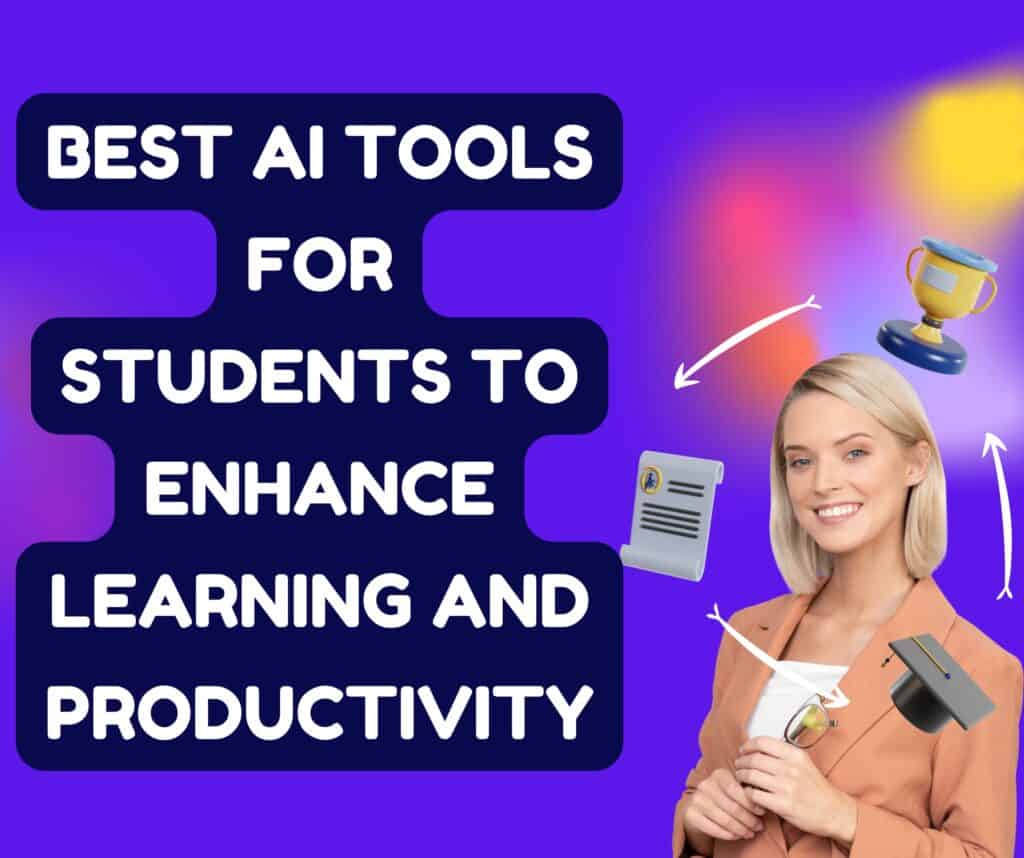In recent years, the landscape of education has undergone a significant transformation, largely driven by the rise of online courses. The global pandemic accelerated this shift, as educational institutions and learners alike adapted to the challenges of traditional learning environments. As a result, millions of students, professionals, and lifelong learners have turned to online platforms to enhance their skills, pursue new interests, and gain valuable knowledge.
Online courses have experienced exponential growth, becoming a preferred method of learning for people of all ages and backgrounds. According to a report from Global Industry Analysts, the global e-learning market is projected to reach over $375 billion by 2026, highlighting the increasing demand for flexible and accessible education.
One of the most compelling reasons for this trend is the flexibility that online courses offer. Learners can access course materials anytime and anywhere, allowing them to study at their own pace and fit their education around their busy schedules. This flexibility is especially beneficial for working professionals, parents, and anyone juggling multiple responsibilities.
Moreover, online courses provide unparalleled accessibility. Regardless of geographical location, anyone with an internet connection can enroll in courses from prestigious universities or expert instructors across the globe. This democratization of education has opened up opportunities for individuals who may not have had access to quality learning resources in their local areas.
The range of topics available in online courses is another significant advantage. From coding and digital marketing to creative writing and culinary arts, learners can explore an extensive array of subjects tailored to their interests and career goals. This variety not only makes education more engaging but also allows individuals to acquire diverse skills that are increasingly valued in today’s job market.
In this article, we will explore the world of online courses in depth. You will learn about the different types of courses available, how to choose the right one for your needs, and tips for maximizing your online learning experience. Whether you’re looking to advance your career, learn a new hobby, or simply expand your knowledge, this guide will provide you with valuable insights and practical advice to embark on your online learning journey
Turn your ambitions into achievements. Click here to start your business!
Try Wealthy Affiliate (For Free).
What Are Online Courses?
Definition of Online Courses
Online courses are structured educational programs delivered via the internet, allowing learners to access course materials, lectures, and resources remotely. These courses can range from single classes focused on specific skills to comprehensive programs that lead to certifications or degrees. Typically, online courses include a combination of video lectures, readings, assignments, quizzes, and discussion forums, creating an interactive learning environment. The flexibility of online courses allows students to learn at their own pace, making them an appealing option for individuals with diverse schedules and commitments.
Evolution of Online Education
The concept of online education isn’t entirely new; it has been evolving since the early days of the internet. In the late 20th century, distance education began to gain traction with the advent of correspondence courses, where students would receive materials through mail. With the rise of the internet in the late 1990s, educational institutions started to explore digital platforms for delivering content, leading to the first wave of online courses.
In the early 2000s, universities and colleges began offering online degree programs, leveraging technology to reach a broader audience. This marked a significant shift in higher education, as it allowed institutions to expand their reach beyond traditional classrooms. As technology continued to advance, so did the format and delivery of online courses. The introduction of learning management systems (LMS) and platforms like Coursera, Udemy, and edX further revolutionized online education, making it more interactive and accessible.
Today, online courses encompass a wide range of formats, including self-paced, instructor-led, and hybrid courses that combine both elements. This evolution has made it possible for learners to engage with high-quality educational content from anywhere in the world.
Why Online Learning Has Surged in Popularity
The surge in popularity of online learning can be attributed to several key factors:
- Convenience and Flexibility: Online courses allow learners to study whenever and wherever they choose. This convenience is especially appealing for busy professionals, parents, and students who may need to balance multiple responsibilities. Learners can tailor their study schedules to fit their lifestyles, whether that means studying early in the morning, during lunch breaks, or late at night.
- Accessibility: Online courses break down geographical barriers, enabling individuals from diverse backgrounds and locations to access quality education. This accessibility is particularly important for those living in remote or underserved areas where traditional educational resources may be limited. Additionally, many online courses are designed to be more affordable than their in-person counterparts, making education more financially attainable.
- Variety of Subjects: Online courses offer an extensive range of topics and specializations, allowing learners to explore areas of interest that may not be available locally. Whether it’s learning a new programming language, diving into digital marketing, or picking up a new hobby, the variety of online courses caters to a broad spectrum of interests and career goals.
- Technological Advancements: The rapid development of technology has made online learning more engaging and effective. Features such as interactive quizzes, multimedia content, and discussion forums foster a dynamic learning experience. Moreover, advancements in video conferencing technology have enabled real-time interactions between instructors and students, creating a more immersive educational environment.
- Lifelong Learning: In today’s fast-paced world, continuous learning is essential for personal and professional growth. Many individuals are recognizing the importance of lifelong learning and seek online courses to enhance their skills, pivot careers, or stay updated with industry trends. Online education allows them to pursue these goals without the constraints of traditional learning environments.
Benefits of Taking Online Courses
The rise of online courses has revolutionized education, offering numerous benefits that appeal to a diverse range of learners. Here are some key advantages of enrolling in online courses:
Flexibility to Learn at Your Own Pace
One of the most significant benefits of online courses is the flexibility they provide. Unlike traditional classroom settings, where students must adhere to a fixed schedule, online courses allow learners to study at their own pace. This means you can dedicate as much time as you need to grasp difficult concepts, revisit lecture materials, and complete assignments according to your personal timeline. This flexibility is particularly advantageous for individuals balancing multiple commitments, such as work, family, or other obligations. Whether you’re a night owl or an early riser, online courses let you choose when and how you learn, fostering a more personalized educational experience.
Accessibility from Any Location
Online courses break down geographical barriers, making education accessible to learners regardless of their physical location. All you need is an internet connection, and you can participate in courses from top universities, experts, and educational platforms around the globe. This accessibility is especially valuable for individuals living in remote or underserved areas where local educational resources may be limited. Furthermore, online courses often cater to a diverse range of learners, including those with disabilities, by providing alternative learning methods and resources, ensuring that everyone has the opportunity to succeed.
Affordable Alternatives to Traditional Education
Cost is often a significant factor when considering education. Online courses tend to be more affordable than traditional in-person classes, making them an attractive option for many learners. There are often no commuting costs, housing fees, or expensive textbooks, as many online courses provide materials digitally at no additional charge. Additionally, many platforms offer a variety of free courses or low-cost options, allowing learners to explore new subjects without a significant financial commitment. This affordability opens doors for individuals who might not have the resources to pursue traditional education, making lifelong learning more attainable.
Access to a Wide Range of Subjects and Expert Instructors
The variety of subjects available in online courses is virtually limitless. From technical skills such as programming, data analysis, and graphic design to creative pursuits like writing, photography, and music, learners can find courses that align with their interests and career aspirations. Many online platforms collaborate with leading universities and industry experts, providing access to high-quality content and instruction. This means learners can benefit from the expertise of renowned instructors, gaining insights and knowledge that may not be available in their local institutions. This vast selection allows individuals to explore new areas of interest and gain diverse skills that can enhance their personal and professional lives.
Skill Development for Career Advancement or Personal Growth
In today’s competitive job market, continuous skill development is essential for career advancement. Online courses offer an excellent way for professionals to acquire new skills or enhance existing ones, making them more attractive candidates for job opportunities. Whether it’s learning about emerging technologies, mastering a new software program, or developing leadership skills, online courses can help individuals stay relevant in their fields. Additionally, online learning isn’t limited to career-related skills; it also encourages personal growth. Many learners take online courses to explore hobbies, deepen their knowledge in specific areas, or pursue interests that enrich their lives outside of work. This focus on both professional and personal development makes online courses a valuable investment in one’s future.
Disclaimer: This post contains affiliate links. If you purchase through them, I may earn a commission at no extra cost to you. These links offer access to valuable resources like training and tools for your online business.
Try Wealthy Affiliate (For Free).
Types of Online Courses Available
The diverse landscape of online education offers a variety of courses catering to different learning needs and interests. Below are the primary types of online courses you can explore:
Skill-Based Courses
Skill-based courses focus on teaching practical skills that can be applied in various professional contexts. These courses are designed to equip learners with specific abilities that are in high demand in today’s job market.
- Coding and Programming: With the growing importance of technology, many online platforms offer coding courses in languages like Python, Java, and HTML/CSS. These courses can range from beginner to advanced levels, allowing individuals to build web applications, create software, or even analyze data.
- Design: Online courses in graphic design, UX/UI design, and web design teach learners how to use design software and develop creative solutions for businesses. These courses often include hands-on projects that help students build a portfolio.
- Digital Marketing: As businesses increasingly shift their focus to online platforms, courses in digital marketing, social media management, SEO, and content marketing have gained popularity. These programs equip learners with the skills needed to effectively promote products and services in the digital realm.
Skill-based courses typically emphasize hands-on learning, allowing students to work on projects and assignments that reinforce their understanding and proficiency in the subject matter.
Academic Courses
Academic courses include accredited online programs offered by universities and colleges. These courses often contribute to degree programs and are designed to provide learners with a comprehensive understanding of a particular field of study.
- Degree Programs: Many institutions now offer complete degree programs, from associate degrees to bachelor’s and master’s degrees, all delivered online. Students can pursue areas such as business administration, psychology, education, or healthcare without needing to attend physical classes.
- Individual Courses: Students can also enroll in individual academic courses that count towards their degree or for personal enrichment. These courses often follow a traditional curriculum and provide the same level of rigor as in-person classes, with the added flexibility of online access.
By providing accredited programs, academic courses ensure that learners receive recognized qualifications that can enhance their career prospects and academic credentials.
Certification Courses
Certification courses are specifically designed to help individuals gain professional credentials that can enhance their employability and career advancement.
- Industry Recognized Certifications: Many online platforms partner with professional organizations to offer courses that lead to certifications in various fields. Examples include project management (PMP), data analytics (Google Data Analytics), and human resources (SHRM).
- Skill-Specific Certifications: Some courses focus on particular skills, such as digital marketing certifications from platforms like HubSpot or Facebook Blueprint, which are highly valued by employers. Completing these courses can demonstrate a learner’s expertise and commitment to their field, making them more competitive in the job market.
Certification courses are often shorter than traditional degree programs and provide focused training that aligns with industry standards, helping learners quickly acquire the skills needed to excel in their careers.
Hobby Courses
Hobby courses cater to individuals looking to explore personal interests and creative pursuits outside their professional lives. These courses provide an opportunity to learn for enjoyment and personal development.
- Photography: Online photography courses teach learners the fundamentals of capturing great images, editing techniques, and even niche areas like portrait or landscape photography. Many of these courses encourage hands-on practice, allowing students to develop their skills through real-life projects.
- Music: For aspiring musicians, online courses in music theory, instrument playing, or songwriting offer valuable insights and instruction. Learners can access lessons from experienced instructors and practice at their convenience, making it easier to balance music education with other commitments.
- Language Learning: Language courses provide an engaging way to learn new languages through interactive lessons, cultural insights, and practice exercises. Many platforms offer options for learners of all levels, from complete beginners to those looking to refine their skills.
How to Choose the Best Online Course for You
With countless online courses available across various platforms, selecting the right one can be overwhelming. Here are some steps to help you make an informed decision and find the course that best meets your needs:
Define Your Learning Goals
Before diving into course selection, it’s essential to identify your learning objectives. Clearly defining your goals will help narrow your options and ensure that the course you choose aligns with what you want to achieve. Consider the following questions:
- What skills do you want to acquire? Are you looking to learn a specific programming language, improve your writing skills, or explore a new hobby like photography?
- Are you aiming for career advancement? Determine if you want to enhance your current skill set for your job, switch careers, or gain qualifications for a promotion. Understanding your professional aspirations will help guide your course choice.
- Is this for personal enrichment? If you’re learning for personal growth or enjoyment, think about what topics or skills genuinely interest you. This can lead to a more fulfilling learning experience.
By having clear goals, you can focus on courses that directly contribute to your desired outcomes, making the learning process more efficient and meaningful.
Research Reputable Platforms
Once you’ve defined your learning goals, it’s time to explore reputable online learning platforms. Each platform has its unique offerings and course formats, so consider the following well-known options:
- Coursera: Collaborating with top universities and organizations, Coursera offers a wide range of courses, including degree programs, professional certificates, and individual classes.
- Udemy: A marketplace for courses on virtually any subject, Udemy features a diverse selection of user-generated content. It’s an excellent platform for niche topics and skills.
- edX: Founded by Harvard and MIT, edX provides high-quality courses from prestigious universities, including options for accredited degrees and professional certificates.
- Skillshare: Focused on creative skills and practical learning, Skillshare offers courses in design, writing, photography, and more. It’s ideal for those looking to develop artistic skills.
Take the time to explore these platforms and compare their offerings, course formats, and community engagement features. A reputable platform enhances the overall learning experience and can provide valuable resources and support.
Read Reviews and Testimonials
Before committing to a course, it’s crucial to gauge the experiences of other learners. Reading reviews and testimonials can provide insights into the course’s quality, content, and teaching methods. Consider the following:
- Course Content: Look for feedback on the depth and relevance of the material. Are learners satisfied with what they learned? Did they find the course informative and engaging?
- Instructor Effectiveness: Assess reviews regarding the instructor’s teaching style, expertise, and ability to communicate concepts clearly. A knowledgeable and approachable instructor can significantly enhance your learning experience.
- User Experience: Examine comments on the platform’s usability, accessibility, and support services. A user-friendly interface and responsive support team can make a big difference in your overall satisfaction.
You can find reviews on the platform itself, third-party review sites, or educational forums. Taking the time to read others’ experiences will help you identify potential red flags and make a more informed decision.
Check for Credentials
It’s important to ensure that the course you’re considering is taught by qualified instructors or accredited institutions. Here’s what to look for:
- Instructor Qualifications: Review the instructor’s background and expertise in the subject area. Do they have relevant degrees, industry experience, or professional certifications? A qualified instructor is more likely to provide valuable insights and a comprehensive understanding of the material.
- Accreditation: If you’re pursuing a course for academic credit or professional certification, verify whether the course is offered by an accredited institution. Accreditation ensures that the course meets certain standards of quality and can have a significant impact on your qualifications and job prospects.
Choosing courses led by credible instructors or reputable institutions can enhance your learning experience and provide you with more valuable credentials.
Consider Time and Cost
Lastly, before selecting an online course, evaluate both the time commitment required and the cost associated with it.
- Time Commitment: Review the course structure and duration. Consider how many hours per week you can realistically dedicate to studying. Some courses may be self-paced, allowing for more flexibility, while others may have strict deadlines.
- Budget: Assess the course fees and compare them to your budget. While some platforms offer free courses or financial aid options, others may require a more substantial investment. Consider whether the potential return on investment aligns with your career goals and personal aspirations.
Top Platforms Offering Online Courses
The rapid growth of online education has led to the emergence of numerous platforms, each catering to different learning styles and needs. Here’s a closer look at some of the top platforms offering online courses and what makes each of them unique:
Coursera: University Partnerships and Certifications
Coursera is renowned for its collaboration with leading universities and organizations worldwide, providing access to high-quality educational content.
- Diverse Course Offerings: Coursera features courses across a wide range of disciplines, including technology, business, health, social sciences, and humanities. Many courses are designed in partnership with top universities such as Stanford, Yale, and the University of London.
- Professional Certifications: In addition to individual courses, Coursera offers professional certificates that are recognized by employers. These certificates are often created in collaboration with industry leaders, ensuring that the skills taught are relevant and in demand.
- Degree Programs: Students can also pursue fully online degree programs at both undergraduate and graduate levels. These programs offer the same rigor and accreditation as traditional degrees but with the flexibility of online learning.
- Flexibility: Many courses are self-paced, allowing learners to study on their schedule. Coursera also offers financial aid for eligible learners, making it accessible for a broader audience.
Udemy: Budget-Friendly, Skill-Based Courses
Udemy is a popular online learning marketplace that offers a vast array of courses at competitive prices, making it an excellent choice for budget-conscious learners.
- Wide Range of Topics: Udemy hosts over 100,000 courses on diverse subjects, including technology, design, marketing, personal development, and even hobbies like cooking and photography. This extensive selection ensures that learners can find courses tailored to their interests and needs.
- Affordability: Courses on Udemy are often available at low prices, with frequent discounts and sales. This affordability makes it easy for learners to explore multiple subjects without a significant financial commitment.
- Skill-Based Focus: Many courses emphasize practical skills and hands-on projects, enabling learners to apply what they’ve learned immediately. This practical approach helps build confidence and competence in various fields.
- User-Generated Content: Since courses are created by individual instructors, quality can vary. However, learners can assess courses through ratings and reviews from previous students, allowing them to make informed choices.
edX: High-Quality Academic Courses from Top Universities
edX, founded by Harvard and MIT, is a leading platform for online education, particularly known for its rigorous academic standards.
- Accredited Courses: edX offers a range of accredited courses and MicroMasters programs, which can be applied toward a full master’s degree at participating universities. This unique feature makes edX an attractive option for serious learners seeking formal qualifications.
- Diverse Subjects: With courses spanning fields such as data science, engineering, humanities, and business, edX caters to learners from various academic backgrounds and professional aspirations.
- Professional Certificates: Similar to Coursera, edX provides professional certificates designed to enhance job readiness and career advancement. These certificates are often developed in collaboration with industry experts, ensuring they meet current market demands.
- Interactive Learning Experience: Many edX courses incorporate interactive elements like quizzes, peer discussions, and projects, providing a comprehensive learning experience that fosters engagement and collaboration.
Your dreams of financial independence are within reach. Start now!
Try Wealthy Affiliate (For Free).
Skillshare: Creative Courses for Hands-On Learning
Skillshare is a platform dedicated to creative learning, offering courses that encourage hands-on practice and collaboration.
- Focus on Creativity: Skillshare specializes in creative fields such as graphic design, photography, writing, and crafts. Courses often include practical projects that allow learners to apply their skills and showcase their work.
- Community-Oriented Learning: Skillshare promotes community engagement through discussion forums and peer feedback, enabling learners to connect with one another, share insights, and collaborate on projects.
- Subscription Model: Skillshare operates on a subscription basis, allowing users to access a wide range of courses for a monthly fee. This model is particularly appealing for those who want to explore multiple subjects without committing to individual course fees.
- Inspiring Instructors: Many instructors on Skillshare are industry professionals, offering unique insights and techniques from their experiences. This exposure to real-world applications adds significant value to the learning experience.
LinkedIn Learning: Professional Development and Business Skills
LinkedIn Learning, formerly known as Lynda.com, focuses on professional development and business skills, making it an excellent choice for career-oriented learners.
- Business-Focused Courses: LinkedIn Learning offers a variety of courses in areas such as project management, marketing, leadership, and software skills. This emphasis on business and professional skills caters to individuals looking to advance their careers or switch fields.
- Integration with LinkedIn: LinkedIn Learning integrates seamlessly with LinkedIn profiles, allowing learners to showcase their completed courses and certifications to potential employers. This feature can enhance visibility and credibility in the job market.
- Expert Instructors: Courses are taught by industry experts and thought leaders, providing learners with high-quality instruction and up-to-date industry knowledge.
- Learning Paths: LinkedIn Learning offers curated learning paths that guide learners through a series of related courses, helping them develop comprehensive skills in specific areas. This structured approach can be particularly useful for individuals pursuing career advancements or transitions.
How to Maximize Your Online Learning Experience
Taking an online course can be a rewarding and transformative experience, but to truly benefit from it, you must actively engage in the learning process. Here are some effective strategies to maximize your online learning experience:
Set Clear Goals: Know What You Want to Learn
Establishing clear and specific learning goals is crucial for staying focused and motivated throughout your online course. Here’s how to do it:
- Identify Learning Outcomes: Reflect on what you hope to achieve from the course. Are you looking to acquire a new skill, earn a certification, or deepen your knowledge in a particular subject? Having clear outcomes helps you direct your efforts more effectively.
- Break Down Goals: Divide your overarching goals into smaller, manageable objectives. For instance, if your aim is to learn a programming language, set milestones such as completing specific modules or projects. This approach makes it easier to track your progress and maintain motivation.
- Use the SMART Framework: Consider using the SMART criteria (Specific, Measurable, Achievable, Relevant, Time-bound) to define your goals. This structured method can help clarify your objectives and create a roadmap for your learning journey.
Create a Study Schedule: Stay Consistent with Your Learning
Consistency is key to successful online learning, and creating a study schedule can help you establish a routine:
- Set Aside Dedicated Time: Choose specific days and times for studying, just as you would for a traditional class. Consistency in your schedule fosters discipline and makes learning a regular part of your day.
- Be Realistic: While it’s important to be committed, ensure that your schedule is realistic and flexible. Life can be unpredictable, so allow for adjustments if needed. Aim for a balance that fits comfortably within your lifestyle.
- Utilize Tools: Use digital tools or planners to set reminders for your study sessions and track deadlines. Calendar apps or task management tools can help you stay organized and accountable.
Take Notes: Keep Track of Key Points
Taking notes is an effective way to reinforce your learning and retain information:
- Active Note-Taking: Engage with the material by actively taking notes while watching lectures or reading course materials. Summarize key concepts in your own words to aid retention and comprehension.
- Organize Your Notes: Use headings, bullet points, and diagrams to organize your notes clearly. This structure will make it easier to review important points later and help reinforce your understanding of the material.
- Review Regularly: Set aside time to review your notes periodically. This practice reinforces what you’ve learned and helps identify any areas that may need further clarification or study.
Participate in Discussion Forums: Engage with Fellow Learners
Many online courses offer discussion forums or community features that encourage interaction among learners:
- Ask Questions: Don’t hesitate to ask questions in forums or during live sessions. Engaging with instructors and fellow students can provide additional insights and clarify difficult concepts.
- Share Your Insights: Contribute to discussions by sharing your perspectives or experiences related to the course material. This collaborative approach fosters a sense of community and enriches the learning experience.
- Network with Peers: Building connections with fellow learners can lead to valuable relationships and networking opportunities. Engaging in discussions can also introduce you to diverse viewpoints and ideas.
Practice What You Learn: Apply Knowledge Through Projects or Real-World Tasks
One of the best ways to solidify your understanding is by putting your knowledge into practice:
- Hands-On Projects: Look for opportunities within your course to work on practical projects or assignments. Applying what you’ve learned in real-world scenarios reinforces your skills and boosts confidence.
- Create Personal Projects: If your course lacks practical assignments, consider creating your own projects that align with your learning goals. For example, if you’re taking a course on web development, build a personal website to showcase your skills.
- Volunteer or Freelance: Seek opportunities to apply your new skills in real-world contexts. Volunteering for organizations or taking on freelance projects can provide valuable experience and enhance your portfolio.
Future of Online Learning
The landscape of online learning is rapidly evolving, driven by technological advancements and changing societal needs. As we look to the future, several key trends are shaping the way education is delivered and experienced. Here’s an exploration of the most significant developments in the realm of online learning:
How Technology like AI, VR, and AR is Shaping the Future of Online Education
Advancements in technology are revolutionizing online learning, making it more interactive, personalized, and engaging. Here’s how:
- Artificial Intelligence (AI): AI is increasingly being integrated into online courses to enhance the learning experience. From personalized learning paths that adapt to individual progress to intelligent tutoring systems that provide instant feedback, AI technologies can significantly improve student outcomes. AI can analyze learner behavior and performance data to offer tailored content, helping learners focus on areas where they need improvement.
- Virtual Reality (VR): VR technology provides immersive learning experiences that transport students to different environments, enabling them to engage with course material in a hands-on way. For example, medical students can practice surgical procedures in a virtual operating room, while architecture students can explore 3D models of buildings. This experiential learning fosters deeper understanding and retention of complex concepts.
- Augmented Reality (AR): Similar to VR, AR enhances the learning experience by overlaying digital information onto the real world. This technology allows students to visualize concepts in a more tangible way. For instance, in a biology course, learners can use AR to see 3D models of cells or anatomical structures, making complex topics more accessible and engaging.
- Gamification: Incorporating game-like elements into online courses—such as points, badges, and leaderboards—can motivate learners and enhance engagement. Gamified learning environments can transform traditional education into an interactive experience, encouraging students to take an active role in their learning process.
It’s time to stop thinking and start doing. Click here to begin your journey!
Try Wealthy Affiliate (For Free).
The Rise of Micro-Credentialing and Digital Badges
As the job market continues to evolve, so does the recognition of skills and qualifications. Micro-credentialing and digital badges are gaining traction as alternative ways to validate and showcase skills.
- Micro-Credentials: These are short, focused courses that provide targeted training in specific skills. They allow learners to build expertise in niche areas without committing to a full degree program. For example, a professional might earn a micro-credential in data analytics, demonstrating their ability to analyze data sets effectively.
- Digital Badges: Badges are visual representations of achievements that learners can display on their resumes, LinkedIn profiles, or digital portfolios. They signify completion of a course or mastery of a skill and can help learners stand out in the competitive job market. Digital badges are particularly appealing to employers, as they offer a verifiable way to assess candidates’ competencies.
- Stackable Credentials: Many institutions are embracing stackable credentials, allowing learners to combine micro-credentials to build a comprehensive skill set. This flexibility empowers learners to tailor their education to meet specific career goals, enhancing their employability.
Lifelong Learning and the Continuous Evolution of Skills
In today’s fast-paced world, the notion of lifelong learning is becoming increasingly important. The need to adapt to new technologies and changing job requirements underscores the importance of continuous education.
- Emphasis on Adaptability: As industries evolve, professionals must remain adaptable and open to acquiring new skills. Online learning provides the perfect platform for this ongoing education, allowing individuals to update their knowledge and competencies as needed.
- Support for Career Transitions: Lifelong learning through online courses enables individuals to pivot into new careers or explore emerging fields. As traditional job roles change and new roles emerge, online education provides accessible pathways for reskilling and upskilling.
- Community Learning: Online platforms are fostering communities of learners who support one another in their educational journeys. These communities can facilitate networking, collaboration, and mentorship opportunities, enhancing the learning experience.
- Global Access to Education: The future of online learning is also marked by its ability to democratize education, making it accessible to learners around the world. This global reach allows individuals from diverse backgrounds to access high-quality education and skills training, irrespective of their geographical location.
Conclusion
In today’s fast-paced world, the importance of online courses cannot be overstated. As education continues to evolve, online learning has emerged as a vital resource, providing learners with the flexibility, accessibility, and diversity of topics needed to thrive in various aspects of life.
Summarizing the Importance and Benefits of Online Courses
Online courses offer numerous advantages that cater to the diverse needs of learners:
- Flexibility: Learners can study at their own pace, allowing them to balance their educational pursuits with work, family, and other responsibilities. This flexibility is particularly beneficial for busy professionals, parents, or anyone with a hectic schedule.
- Accessibility: With the ability to access courses from anywhere in the world, individuals are no longer limited by geographical barriers. Online education provides opportunities for learners from all walks of life, making high-quality education available to a broader audience.
- Diverse Learning Opportunities: The range of subjects available through online courses is vast. Whether you’re interested in enhancing your career prospects, learning a new hobby, or pursuing personal development, there is likely an online course tailored to your needs.
- Cost-Effectiveness: Online courses often present a more affordable alternative to traditional education. Many platforms offer free or low-cost courses, making learning accessible to those who may have financial constraints.
- Skill Development: Whether you aim to gain new qualifications for career advancement or develop personal skills for enrichment, online courses equip you with the knowledge and competencies required to succeed in your endeavors.
Encouraging Readers to Explore Online Learning
As you consider your options for advancing your career or personal development, online courses present an excellent opportunity to expand your horizons. With a wealth of resources at your fingertips, you can take charge of your learning journey.
Exploring online learning can help you acquire valuable skills that enhance your employability, boost your confidence, and open doors to new opportunities. Whether you’re looking to shift careers, enhance your current skill set, or simply explore new interests, online education provides the perfect platform to make those aspirations a reality.
Start Your Learning Journey Today
Don’t wait to embark on your educational journey! The world of online courses is waiting for you to dive in. Here’s how you can get started:
- Identify Your Goals: Reflect on what you want to achieve through online learning. Setting clear objectives will guide your course selection.
- Choose a Platform: Research reputable online learning platforms like Coursera, Udemy, or edX to find courses that align with your goals.
- Enroll in a Course: Select a course that resonates with your interests and enroll. Remember, every step you take brings you closer to your learning objectives.
- Engage Actively: Participate in discussions, ask questions, and practice what you learn. The more you engage with the material, the more you’ll benefit from your educational experience.
- Celebrate Your Progress: Acknowledge your achievements, whether big or small. Every completed course, new skill learned, or goal reached is a step forward in your learning journey.
Take the first step today. Embrace the possibilities that online courses offer and unlock your potential for personal and professional growth. Your journey toward lifelong learning and skill development starts now!
We’d love to hear from you! Your experiences and insights can inspire others on their learning journeys. Have you taken any online courses that made a difference in your life? What challenges did you face, and how did you overcome them?
Why wait for tomorrow when success is a click away? Start your business today!
Try Wealthy Affiliate (For Free).
Feel free to share your thoughts, questions, or any tips you have in the comments below. Engaging with our community can provide valuable support and motivation for those considering online education. Let’s start a conversation about the transformative power of online learning!







